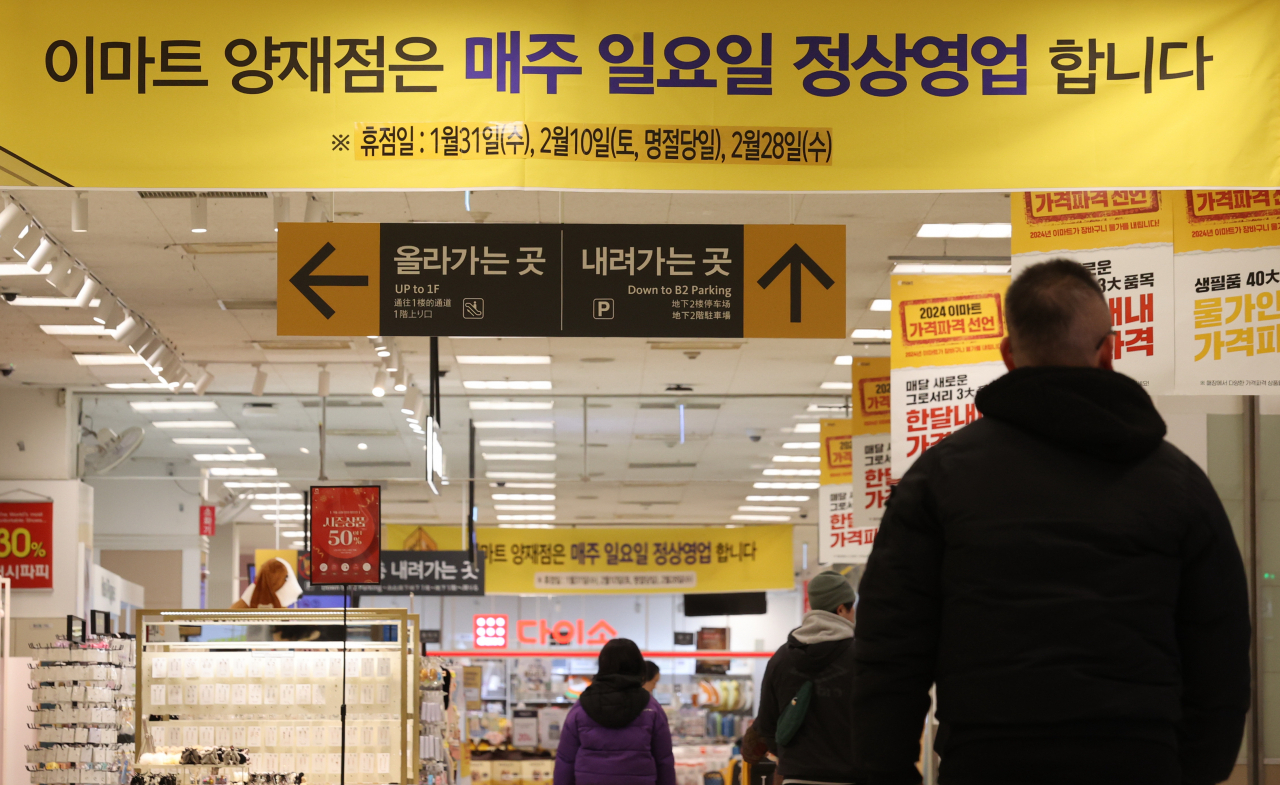 |
A notification at an E-mart store in Seocho-gu, southern Seoul, on Monday informs shoppers that it will now remain open on Sundays, taking the law-mandated days off on two Wednesdays and the Saturday of Seollal for the rest of January and February instead. (Yonhap) |
The South Korean government said on Monday that it has decided to abolish a policy mandating twice-a-month breaks for large discount stores, citing the change as one intended for the convenience of the people.
The Office for Government Policy Coordination held a civic-government discussion in Dongdaemun-gu in Seoul, where it narrowed down a number of potential changes to be made. These included allowing large supermarkets to take their two monthly obligatory breaks on weekdays and allowing them to operate online stores during formerly restricted hours.
The other two items on the agenda were abolishing the Mobile Device Distribution Improvement Act to allow free competition among local distributors and excluding web-based creative content from the fixed book price policy.
"The policies that are ineffective and discriminatory should be assessed at zero-base, from the viewpoint of the people. ... Inducing competition by abolishing regulations and reducing the cost of living is much more beneficial for the people than blindly pumping the budget into (the market)," said Policy Coordination Minister Bang Ki-sun. Bang hosted the event after President Yoon Suk Yeol -- initially slated as the host -- decided not to attend.
The government vowed to work with the National Assembly for law revisions related to abolishing the three regulations.
South Korean law states that all large supermarkets -- defined by law as those 3,000 square meters or larger, including but not limited to supermarket chains like E-mart, Homeplus and Lotte Mart -- are mandated to close two days per month, with heads of regional governments deciding on the day. Since the 2012 revision of the Distribution Industry Development Act, most district offices and provincial governments have required supermarkets to close on the second and fourth Sundays of each month.
From midnight to 10 a.m. every day and on their mandated days off, the large supermarkets are banned from all forms of operation, including delivery of items sold through their online markets.
The policy was introduced to protect smaller traditional markets, but it has been also been blamed for inconveniencing the public, particularly those who live alone and do most of their shopping online or over the weekend. It was announced earlier this month that 42 percent of households in South Korea are one-person households.
The policy has endured through multiple litigations, with the Constitutional Court in 2013 and Supreme Court in 2015 ruling in its favor and the legal clause it is based on. Despite the rulings, local supermarket chains have long resisted the policy and called for an overhaul.
Last year, the Seocho-gu Office became the first district office in Seoul to flexibly allow weekdays to be used for the mandated break days, with a number of other district offices in the capital reportedly discussing or contemplating the same measure. The government officially switching its stance is expected to affect the ongoing wave of change.







